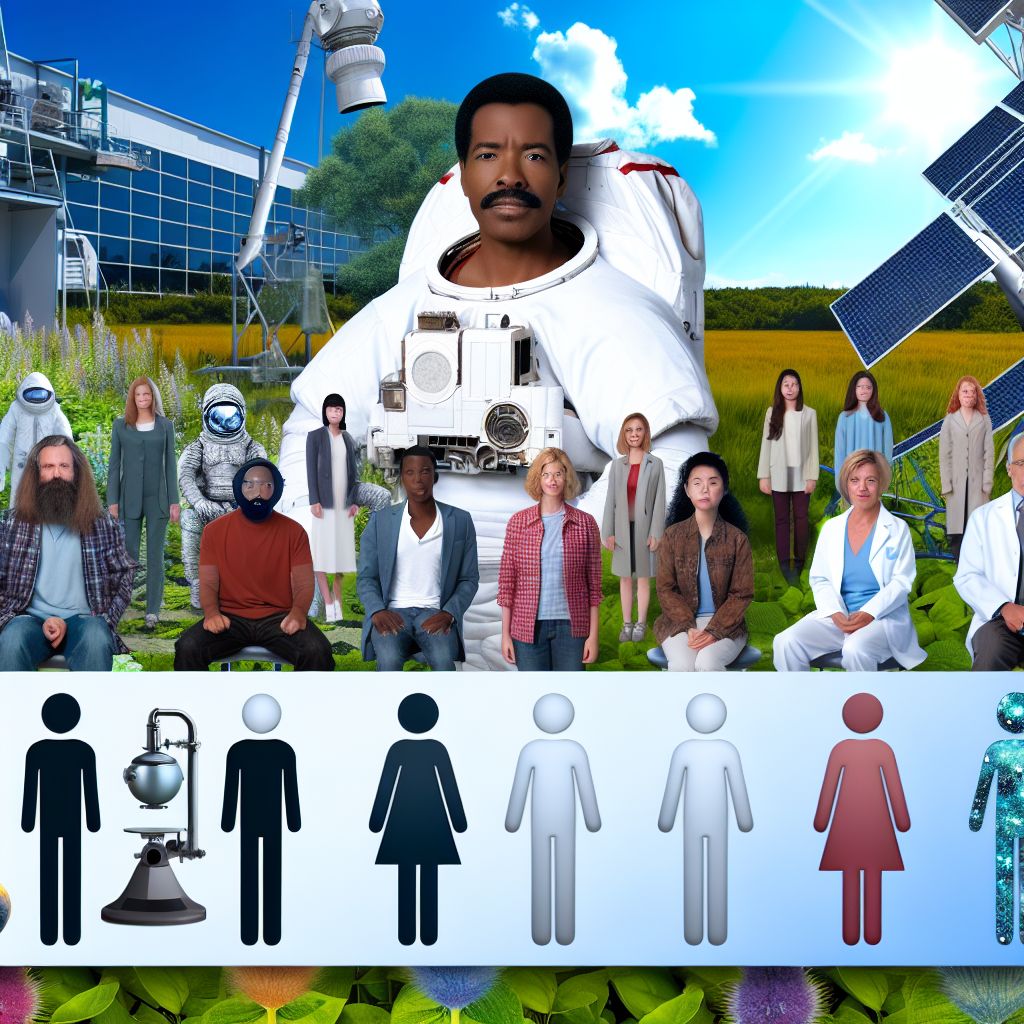English: Astrobiology / Deutsch: Astrobiologie / Español: Astrobiología / Português: Astrobiologia / Français: Astrobiologie / Italiano: Astrobiologia /
In the context of the Space industry, astrobiology is a multidisciplinary field that explores the origin, evolution, Distribution, and future of life in the universe. This article will provide an in-depth look at astrobiology, including examples, risks, application areas, historical insights, legal considerations, and usage in various grammatical forms. It will conclude with a list of related concepts and a summary.
Defining Astrobiology in the Space Industry
Astrobiology is the scientific study that seeks to understand the potential for life beyond Earth. It encompasses a wide range of disciplines, including Biology, Chemistry, Astronomy, Geology, and planetary Science, with the goal of unraveling the mysteries of life's existence elsewhere in the Cosmos.
Examples of Astrobiology Research and Activities
-
Search for Extraterrestrial Life

Astrobiology Astrobiology involves missions and experiments designed to detect signs of life on other Celestial bodies, such as Mars and moons of Jupiter and Saturn.
-
Extremophiles: Scientists study extremophiles on Earth, which are microorganisms thriving in extreme conditions, to understand the possibility of life in Harsh environments elsewhere.
Risks and Challenges in Astrobiology
-
Technological Challenges: Developing instruments and techniques capable of detecting life or its remnants in space is a significant challenge.
-
Sample Contamination: Ensuring that missions searching for extraterrestrial life do not inadvertently carry terrestrial microbes and contaminate other worlds.
Application Areas
-
Planetary Exploration: Astrobiology plays a crucial role in missions to planets, moons, and asteroids to assess their potential Habitability and search for signs of life.
-
Astrobiology Research: Research in astrobiology informs our understanding of the conditions necessary for life and guides the search for life beyond Earth.
Historical Context
Astrobiology as a field gained prominence in the latter half of the 20th century with the exploration of Mars and the Discovery of extremophiles on Earth. The famous Viking missions to Mars in the 1970s were among the first to search for signs of life beyond Earth.
Legal Framework
Astrobiology research and space missions must adhere to international space treaties and planetary protection protocols to prevent contamination and ensure responsible exploration.
Examples of Sentences:
-
Astrobiologist: A scientist specializing in astrobiology conducts experiments to understand life's potential in the cosmos.
-
Astrobiological: The astrobiological community collaborates on projects exploring the possibilities of life beyond Earth.
Similar Concepts
-
Exobiology: The study of the origin, evolution, and distribution of life in the universe, often used interchangeably with astrobiology.
-
Planetary Protection: Protocols and measures to prevent contamination of celestial bodies with Earth organisms and protect potential extraterrestrial life.
-
Exoplanet Research: The study of planets orbiting other stars and their potential habitability.
Weblinks
- allerwelt-lexikon.de: 'Astrobiologie' in the allerwelt-lexikon.de (German)
Summary
Astrobiology is a captivating field within the space industry that seeks to answer fundamental questions about the existence of life beyond Earth. It combines diverse scientific disciplines to explore the potential for life in our solar system and the wider universe. While it faces technological challenges and contamination risks, astrobiology continues to be a driving Force behind planetary exploration and our quest to discover if we are alone in the cosmos. As space missions and research efforts expand, astrobiology will remain at the forefront of scientific discovery, bringing us closer to unraveling the mysteries of extraterrestrial life.
--
Related Articles to the term 'Astrobiology' | |
| 'Microorganism' | ■■■■■■■■■■ |
| Microorganisms in the context of the space industry refer to tiny, often single-celled organisms that . . . Read More | |
| 'Incubation' | ■■■■■■■■■ |
| Incubation: In the context of the space industry, incubation refers to the process of nurturing and supporting . . . Read More | |
| 'Spacefaring' | ■■■■■■■■■ |
| Spacefaring: In the realm of the space industry, spacefaring is a term that encapsulates the activities . . . Read More | |
| 'Barometric Integral Collector' | ■■■■■■■■ |
| The Barometric Integral Collector (BIC) is a a specialized Device used in space missions to collect and . . . Read More | |
| 'BAE' | ■■■■■■■■ |
| In the space industry context, BAE refers to BAE Systems, a global Aerospace and Defense company that . . . Read More | |
| 'Compartment' | ■■■■■■■■ |
| In the complex and high-stakes domain of the space industry, the term compartment takes on a crucial . . . Read More | |
| 'Downstream' | ■■■■■■■■ |
| Downstream: In the space industry, the term "downstream" refers to the applications, services, and industries . . . Read More | |
| 'Starlink' | ■■■■■■■■ |
| In the ever-evolving landscape of the space industry, one name has been making waves: Starlink. Starlink . . . Read More | |
| 'Cosmology' | ■■■■■■■ |
| Cosmology is a branch of Physics and metaphysics dealing with the nature of the universe. . . . Read More | |
| 'Remnant' | ■■■■■■■ |
| Remnant in the space industry context refers to the residual or Leftover components, structures, or debris . . . Read More | |
